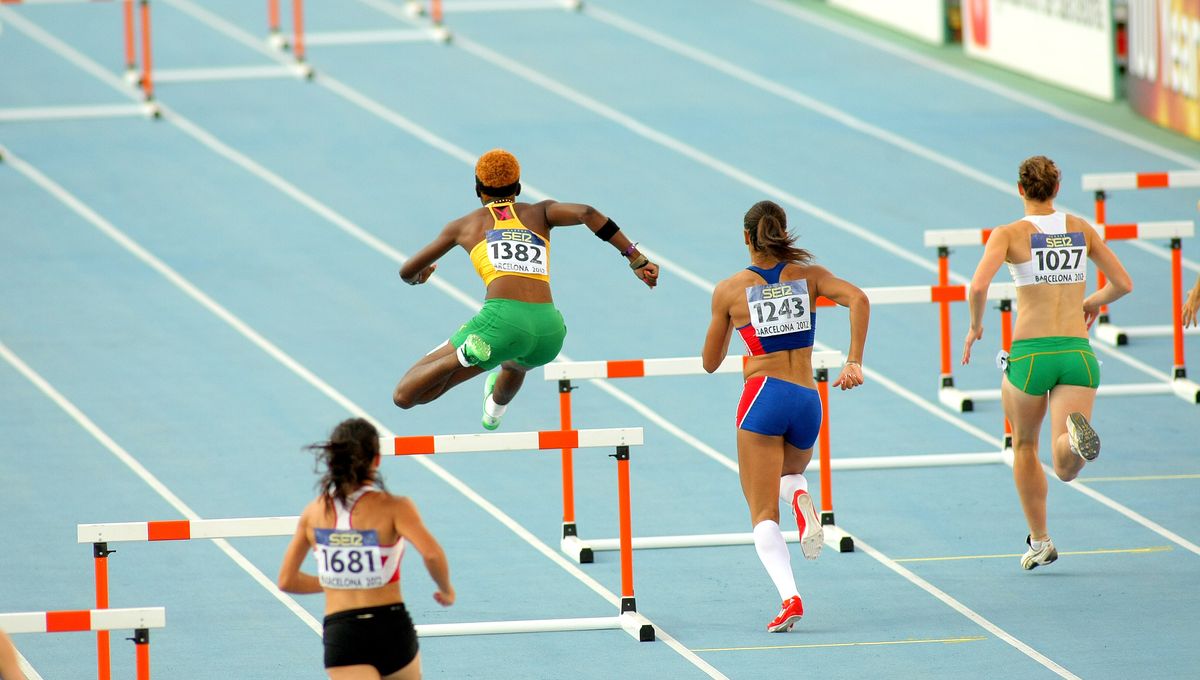
The participation of women in sports in modern times has always been controversial. For a long time, women were not allowed to compete based on some bogus claims about their constitutions. Now, most of the debate is around who counts as a woman, and a new survey looked at one aspect of this: how actual athletes feel about the inclusion of women with a difference in sex development (DSD). And the vast majority are for it.
This first-of-its-kind study surveyed the largest known sample of national, elite, and world-class female athletes. A total 147 athletes from mostly Global North countries completed the survey, and all of them were assigned female at birth. None of them were individuals with DSD.
DSD refers to a series of conditions that involve genes, hormones, and reproductive organs. A person with one of these conditions might develop in a different way from most other people; for example, it is possible to have XY sex chromosomes, typical of males, but external genitals that appear more typically female. Intersex, a term that some individuals choose to use to describe themselves, can fall under this umbrella.
It is perfectly possible not to be aware of one’s own DSD. People can be cisgender – their assigned sex at birth is the same as their gender – even though their genes or hormonal profile is different. There was, for example, the case of a woman whose cells mostly contained XY chromosomes but who had regular menstrual cycles and even gave birth with no issues.
The survey showed that the vast majority of the athletes (82.2 percent) believed that sport federations could do more to be inclusive. Most believed that there shouldn’t be a special category for people with DSD, in particular in precision sports like shooting (69.5 percent). Almost 70 percent did not think that World Athletics’ criteria for the participation of women with DSD in the female category were fair, and 67.2 percent felt it was unethical to ask women with DSD to medicate to participate in sport.
In athletics, probably the most famous case is that of Olympic gold medalist Caster Semenya. The South African woman won gold at the World Championships in 2009; she was made to undergo sex testing, and she was cleared to compete. She has a specific DSD condition and explained herself in a piece for the New York Times that she has natural testosterone levels that are higher than the average woman’s. In 2019, World Athletics updated its rules that force certain athletes with naturally higher testosterone to medicate to suppress it if they want to participate.
Many people have pointed out the difference in the treatment of Semenya’s natural genetic condition compared to fellow Olympic winner Michael Phelps’ natural ability to produce less lactic acid. There is no discussion on the inclusion or medicating of people in the male categories, and in particular, the targets of exclusion have tended to be specifically women of color.
This was also the case of boxers Imane Khelif of Algeria and Lin Yu-ting of Taiwan, who were targeted in a misinformation campaign amplified by Donald Trump, Italian Premier Giorgia Meloni, Elon Musk, J.K. Rowling, and far-right online commentators. The campaign claimed that they were women with DSD and/or transgender based on a never-shared genetic sex test that they allegedly failed.
The two claims had no merit in themselves, as Khelif and Yu-ting are women and were allowed to compete, but together are completely at odds. Some DSD might give a testosterone enhancement, but most trans women take testosterone suppressants. In fact, the limited literature on the subject of trans women in sport shows that there is no biological advantage for trans women over cis women because of the testosterone suppression. Trans athletes have been able to compete at the Olympics since 2004, and only one openly trans person ever qualified: New Zealand weightlifter Laurel Hubbard. She placed last in her group.
It is also important to state that testosterone is not a miracle hormone that makes people with lots of it superhuman. Women in sport can outcompete more than just the average man despite lower testosterone, and in certain categories, such as ultralong distance skiing, women are outcompeting their fellow male athletes too.
The study is published in the European Journal of Sport Science.
Source Link: Olympic Athlete Majority: People With Differences In Sex Development Deserve Inclusion In Sports